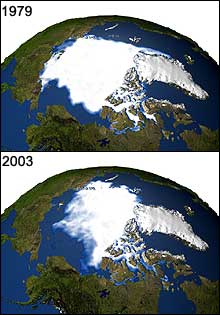Critique called 'drive-by shooting' Charles Mandel and Emma Poole
For CanWest News Service and Calgary Herald
Friday, October 07, 2005
With new subdivisions of half-million-dollar houses opening every month, Calgary "is the North American tragedy in microcosm."
That's the opinion of James Howard Kunstler, an outspoken urban affairs writer who recently visited the city and posted his less-than-flattering impressions on his highly regarded web blog.
Calgary is "an archetypal city of immense glass boxes in a sterilized centre surrounded by an asteroid belt of beige residential subdivisions," Kunstler wrote.
"The vast suburbs ooze out onto the prairie to the east, along with their complements of strip malls, power centres, car dealerships and fry pits," writes the acerbic and acclaimed author of several books on suburban sprawl and New Urbanist development.
Kunstler was even less charitable when reached by phone at his home Thursday in Saratoga Springs, N.Y.
"I thought it represented pretty much all the banality of bad choices that we continue to make in this part of the world."
Some Calgarians believe Kunstler's description is unjust and spiteful.
A recent survey by the Economist on global quality of life placed Calgary third in a tie with Toronto, Perth, Adelaide, Sydney and Zurich.
It left some professional planners wondering: How could a city so great to live in, allegedly be so ugly?
"I would say he hasn't been in Calgary long enough. He's sort of done a drive-by shooting here," said local architect Wade Gibbs of Gibbs Gage Architects. "There's more attention to design in Calgary than in most other North American cities. It's unfair to summarize Calgary . . . in just eight lines (in the blog)."
Kunstler said he doesn't mean to single out Calgary, only that the Western metropolis is typical in its poor urban design, featuring a core of uninteresting glass towers from which radiate districts comprising cookie-cutter homes and big box stores.
In his most recent book, The Long Emergency, Kunstler argues the depletion of fossil fuels will cause cities to become denser in the core while the suburbs collapse.
Gibbs said Calgary's downtown core is built using "corporate-driven architecture."
Behind every tower design is a client, a budget and a vision, said Gibbs.
Just because Kunstler doesn't like the look of the area, doesn't make it a bad design, he said.
While it might seem Kunstler has it in for Calgary, the former writer for Rolling Stone isn't any more forgiving of other Canadian cities. The only thing he noticed on his last visit to Vancouver was that the downtown apartment towers tended to sit on podium-like structures with blank walls at their base.
Ottawa, he said, was overburdened with experimental modernist buildings that sit in the city like objects lost in space, and Windsor is "banal and boring."
Edmontonians shouldn't get too smug about Kunstler's description of Calgary. While he enjoyed the northern Alberta city more, Kunstler said: "It was interesting to be in such a substantial town so far away from anything."
It's that antagonistic attitude that has Calgary city planners scoffing at Kunstler's radical views.
"He uses the same language when he describes any city in North America," said Brent Toderian, manager of city-centre planning and design for the city.
"In many cases I agree with him, but sometimes he goes too far," he said. "He's not totally off, but he's not aware of the strides we've made."
Toderian said Calgary is doing better at creating centres of activities within communities.
As well, he said, local architects and planners have designed top-quality projects Kunstler wouldn't have seen from the highway.
Communities such as McKenzie Towne, Garrison Woods and The Bridges are examples of thriving urban and suburban planning.
"There's been a lot of beige in the past. We realize that the centre city architecture could be improved," said Toderian. "We're an extremely successful and exciting city and our architecture should reflect that. We have to avoid cheesy theming."
Is there any place the author likes?
"I don't think North America is in very good shape now anywhere," Kunstler groused, but added, "Some places are not as bad as others."
He cited Toronto and Montreal as two of the better cities because they have lively downtowns and strong public transit systems.
But overall, Kunstler has little good to say about the state of North American cities. He said no quick fix exists for poorly designed urban centres.
epoole@theherald.canwest.com


































